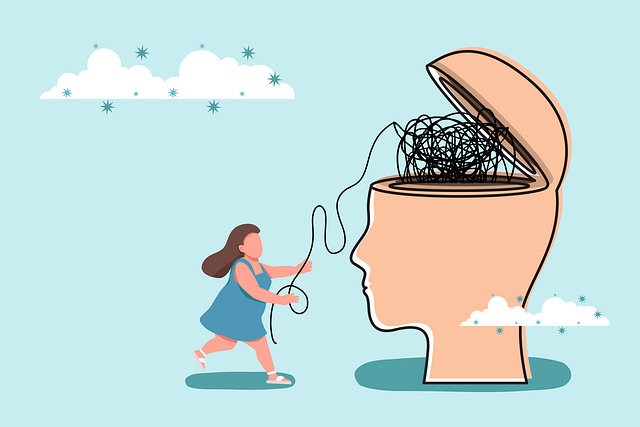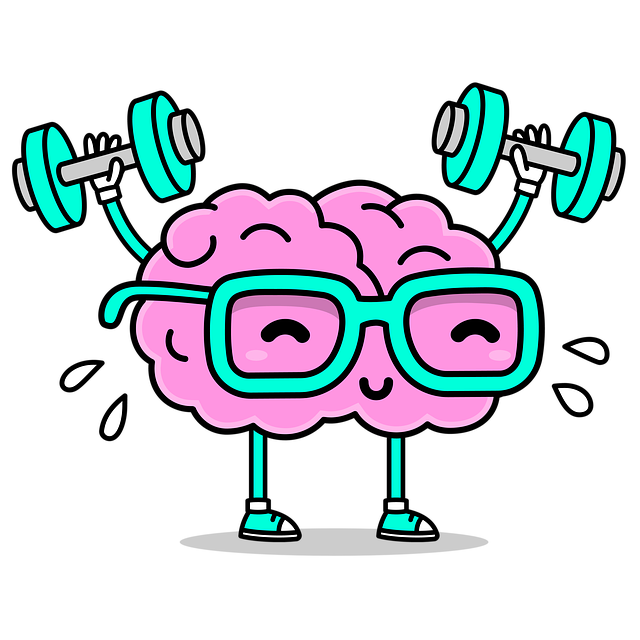Understanding mental health disorders like Golden Dissociative Disorder (GDD) is vital for designing effective education programs. Through demystification, empathy-building, and self-awareness exercises, participants learn to recognize symptoms and provide supportive environments. Specialized GDD therapy combines psychotherapy, CBT, and trauma-focused approaches to facilitate emotional healing and manage complex symptoms. Evidence-based practices, like GDD Therapy, offer transformative solutions, empowering clients to integrate memories and enhance overall well-being. Comprehensive mental health education programs, featuring GDDT, burnout prevention, and advocacy, promote early intervention, reduce stigma, and align with systemic changes for better access to quality care.
“Unveiling comprehensive mental health education is crucial in fostering well-being. Our article delves into the intricate design of such programs, focusing on understanding diverse mental health disorders, including Golden Dissociative Disorder (GDD), its unique challenges, and tailored therapeutic approaches. We explore evidence-based strategies for effective intervention, emphasize program structure as a key to engagement, and guide implementation, evaluation, and continuous improvement. By integrating GDD therapy into educational settings, we aim to enhance mental health literacy and promote supportive environments.”
- Understanding Mental Health Disorders: A Foundation for Education
- Golden Dissociative Disorder: Unique Challenges and Therapeutic Approaches
- Program Structure: Creating an Engaging Learning Environment
- Evidence-Based Strategies for Effective Mental Health Intervention
- Implementation, Evaluation, and Continuous Improvement
Understanding Mental Health Disorders: A Foundation for Education

Understanding Mental Health Disorders is a fundamental step in designing an effective education program. This foundation involves demystifying various conditions, breaking down stereotypes, and fostering empathy among participants. Mental health disorders, such as Dissociative Disorder Therapy (DDT), are complex yet treatable. Educating individuals about these disorders equips them with the knowledge to recognize signs, understand symptoms, and provide supportive environments for those affected.
Integrating Self-Awareness Exercises and Emotional Intelligence activities within the program can enhance participants’ understanding of their own mental health. These exercises encourage introspection, emotional regulation, and improved communication skills. Additionally, implementing a Community Outreach Program can broaden awareness, promote early intervention, and reduce the stigma associated with mental health issues, ensuring a more inclusive and supportive society.
Golden Dissociative Disorder: Unique Challenges and Therapeutic Approaches

Golden Dissociative Disorder (GDD), a complex mental health condition, presents unique challenges that demand tailored therapeutic approaches. Unlike other dissociative disorders, GDD is characterized by extreme and prolonged detachment from reality, often involving alter personalities or states of consciousness. This disconnect can lead to significant impairments in daily functioning, relationships, and overall quality of life for individuals affected.
Effective therapy for GDD involves a multi-faceted approach that combines elements of psychotherapy, cognitive behavioral therapy (CBT), and trauma-focused interventions. Emotional healing processes are central to treatment, helping individuals integrate fragmented memories and emotions. Mood management strategies are also crucial, as fluctuations in mood can trigger dissociative episodes. Risk management planning for mental health professionals is essential to ensure safe and supportive therapeutic environments. Through these comprehensive methods, therapists can guide clients towards better understanding and managing their symptoms, leading to improved overall well-being.
Program Structure: Creating an Engaging Learning Environment

Evidence-Based Strategies for Effective Mental Health Intervention

In designing mental health education programs, evidence-based strategies are paramount to ensure effective intervention. One such approach, Golden Dissociative Disorder Therapy (GDDT), has shown promise in treating complex mental health conditions. GDDT leverages cognitive and behavioral techniques tailored for dissociative disorders, offering a holistic framework that addresses the root causes of dissociation while fostering integration and resilience. This methodical approach not only facilitates recovery but also empowers individuals to manage their mental wellness effectively.
Complementing evidence-based therapies are burnout prevention strategies for healthcare providers, which are essential in maintaining a supportive environment for both patients and practitioners. Integrating these strategies into education programs can enhance the overall effectiveness of mental health initiatives. Additionally, a Mental Wellness Podcast Series Production can serve as a dynamic tool to reach diverse audiences, disseminating evidence-based practices and personal narratives that promote understanding and support. Furthermore, engaging in Mental Health Policy Analysis and Advocacy ensures that educational efforts align with broader systemic changes, addressing societal barriers to accessing quality mental healthcare.
Implementation, Evaluation, and Continuous Improvement

The successful design of a mental health education program requires a comprehensive approach that integrates implementation, evaluation, and continuous improvement strategies. Upon launching the program, it’s crucial to monitor its effectiveness through robust evaluation methods, such as participant surveys, focus groups, and data analysis. This feedback loop is essential for identifying areas of strength and weakness in the curriculum, ensuring it aligns with the needs of the target audience and addresses any emerging challenges.
For instance, incorporating Golden Dissociative Disorder Therapy techniques within the program can be highly beneficial, as evidenced by the increasing demand for such specialized care. Additionally, leveraging tools like a Mental Wellness Podcast Series Production can enhance engagement and reach, while promoting Emotional Well-being Promotion Techniques through interactive workshops and Trauma Support Services can foster a supportive learning environment. Continuous refinement based on these insights is key to ensuring the program remains impactful and relevant in promoting mental wellness.
Mental health education programs play a pivotal role in fostering understanding and promoting early intervention. By incorporating diverse topics like Understanding Mental Health Disorders and exploring unique cases such as Golden Dissociative Disorder, these programs empower individuals to recognize signs and offer support. Effective program design, as outlined in the sections above, ensures engaging learning environments and evidence-based strategies for tangible improvements in mental health outcomes. Continuous evaluation and adaptation are key to refining these initiatives, making them accessible and impactful for all. When implemented with care, such programs can revolutionize mental health awareness and access to therapy, especially for conditions like Golden Dissociative Disorder.









